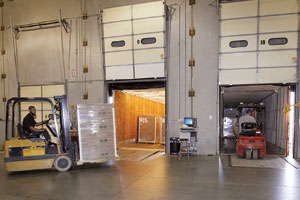Senior Reporter
DOT to Audit Driver Cargo Loading, Unloading Delays

Because drivers can work up to 14 hours a day, delays at shipping and receiving facilities during cargo loading and unloading may result in travel delays and lost wages.
“Truckers who experience these delays may then drive faster to make deliveries within hours-of-service limits or operate beyond these limits and improperly log their driving time, thus increasing the risk of crashes and fatalities,” the IG said in a memo.
The subject of driver delays has been on the Federal Motor Carrier Safety Administration’s radar for years.
A December 2014 FMCSA study that measures driver delays indicated that they experienced an average duration of 1.4 hours of detention time on approximately 1 in every 10 stops, which represents the length of time the driver was at a shipper’s or receiver’s facility beyond the standard 2 hours of unloading/loading time. “Thus, the driver was physically at that delivery location for 3.4 hours in total,” the study said.
Researchers at the Virginia Tech Transportation Institute collected data from two different third-party vendors, ultimately obtaining stop-time information for 31 different motor carriers.
The study also showed that medium-sized carriers had similar average detention times as large carriers; however, they were detained about twice as often as large carriers were.
“For example, 19% of stops made by medium-sized carriers were accompanied by detention time as compared to 9 % of stops made by large carriers,” the report stated.
The odds of a driver being detained were nearly five times greater for for-hire truckload carriers as for private carriers, and 2.6 times greater as for for-hire less-than-truckload carriers.
The odds of a driver being detained were 6.3 and 1.9 times greater for temperature-controlled freight carriers than for dry bulk carriers and liquid bulk/tank freight carriers, respectively, the study said.

